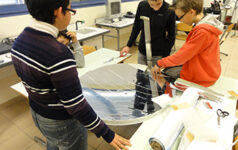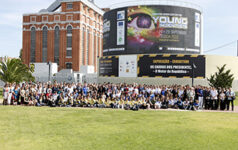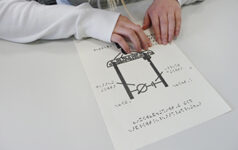Exploring the Mystery of Matter: The ATLAS Experiment, By Kerry-Jane Lowery, Kenway Smith and Claudia Marcelloni
Exploring the Mystery of Matter: The ATLAS Experiment is an engaging and beautifully presented photo book that provides a captivating tour of the marvels of the large-scale particle detector experiments of the Large Hadron Collider (LHC) at CERN, the world’s largest particle physics laboratory.


















